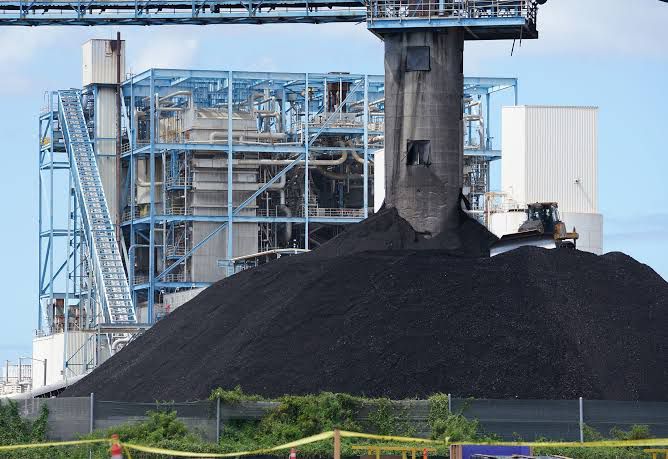Hawaii Power Plant
AES Corporation coal plant shut down on Thursday after 30 years of operation. The final coal shipment arrived in the islands at the end of July. Up to onefifth of the electricity used on Oahu, the state’s most populated island and home to approximately 1.5 million people, was generated by this facility.
In an interview with The Associated Press, Hawaii Governor David Ige stated that “it really is about decreasing greenhouse gases.”
“And one of the biggest emitters is this coal-burning facility.
By turning it off, we will stop the annual emission of 1.5 million metric tonnes of greenhouse gases.”
The Hawaiian chain has experienced the cascading effects of climate change, just like other Pacific islands.
Coral reefs in the state are being destroyed by bleaching brought on by rising ocean temperatures, a rapid rise in sea level, more powerful storms, and dryness, which raises the state’s danger of wildfires.
A bill prohibiting the use of coal for the production of energy at the beginning of 2023 was passed by the Hawaiin Legislature in 2020.
Hawaii was the first state to set a required transition to 100% renewable energy by the year 2045.
Critics contend that while eliminating the state’s dirtiest energy source in the long run is a wise decision, doing so now is not.
Due to contract concerns, supply chain issues related to the pandemic, and delays in obtaining permits, renewable energy sources intended to replace coal energy are not yet operational.
As a result, the state will burn more expensive oil, which is only marginally less harmful than coal.

Democratic state senator Glenn Wakai, who serves as chair of the Committee on Economic Development, Tourism, and Technology, stated, “If you are a believer that climate change will cease because we shut down this coal plant, this is a beautiful day for you.”
However, if you have to pay an electrical bill, today is a terrible day for you.
Consumers who already pay the highest energy and living costs in the country will see an increase in electricity rates as a result of the demise of coal and the rising price of oil.
Ratepayers were expected to receive a 7% increase in their bills, but Hawaiian Electric Company amended that projection down to 4% on Thursday due to a decline in oil costs.
The transition from the least expensive fossil fuel to the most expensive fossil fuel is what we’re doing, according to Wakai.
Additionally, geopolitical problems with oil access and pricing will be a problem.
In light of the closing of the AES coal plant, Hawaii has now joined the list of states without any significant coalfired power plants, according to statistics from the organisation Global Energy Monitor, which promotes the switch to renewable energy worldwide.
There have never been any coal-fired power facilities in Vermont or Rhode Island.
While a few other states had passed laws, Hawaii is the first to fully impose a ban on coal. The first state to enact a ban, Oregon, passed a bill in 2015, although won’t take effect until 2035.
The 2020 coal prohibition in Washington State takes effect in 2025.
States that have imposed restrictions on the development of new coal fired power facilities include California, Maine, and Texas.

According to data from the U.S. Energy Information Administration, about two thirds of Hawaii’s electricity was produced by oil in 2021.
Hawaii is the state most dependent on petroleum as a result, despite its attempts to quickly switch to renewable energy.
In Hawaii, renewable energy sources like wind, solar, hydroelectricity, and geothermal energy now provide about 40% of the state’s energy needs. Coal is increasing. The cost is increasing, “He remarked of the supply Hawaii receives from Indonesian rainforests that have been clear-cut. “U.S. coal wouldn’t be the cheapest energy source on the grid if we were using it,”
Why would Hawaii, a little American state in the Pacific, strive to set the pace for switching to sustainable energy? The repercussions of climate change are already being felt, Glenn said.”If we are not ready and able to act on our own, it is neither fair nor right to ask other countries or states to do so.
We drown if we don’t.”
Read More:- https://tdznkwjt9mxt6p1p8657.cleaver.live/ins-vikrant-india-aircraft-carrier-commissioned/













